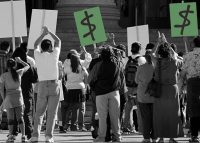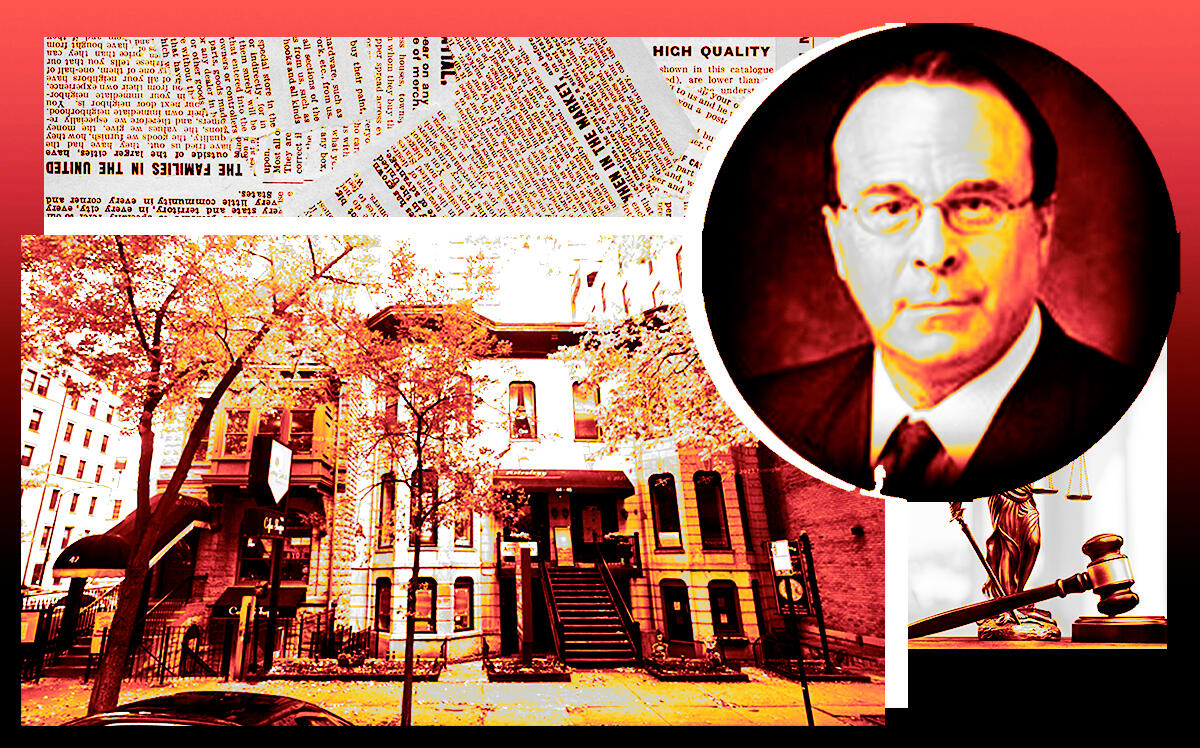 Chicago EB-5 investors irate over Symmetry tower project
Chicago EB-5 investors irate over Symmetry tower project
Trending
Laytin and Ding face $27M judgment over failed River North project
Chinese investors seek to collect from defendants that delayed paying legal fees

Jeffrey Laytin is on the clock to come up with a lot of money that he’s so far failed to provide Chinese real estate investors, despite agreeing to do so nearly two years ago.
The would be-developer of a high-rise in Chicago’s River North and his partner, Jason Ding, were ordered by a federal court on Sept. 19 to pay back $27.5 million to foreign investors in the aborted 60-story condo-hotel project pitched five years ago that never got off the ground.
Laytin’s New York-based Symmetry Property Development proposed and failed to build what was to be called Carillon Tower with buy-in from Chinese investors. The overseas backers funneled cash into the project envisioned for 42-46 East Superior Street through the EB-5 money-for-visas program.
Then, Alderman Brendan Reilly of Chicago’s 42nd Ward thwarted the project by declining approval. Rowhouses that would have been demolished to make way for the tower were cited by preservationists as historically significant and gained landmark status, which hamstrings redevelopment.
In 2020, Laytin agreed to pay back investors nearly $50 million, according to news reports. Yet he’s so far eluded payment, instead promising the court he was working to come up with another source of financing from a Middle Eastern lender to fund the settlement — a deal that turned out to be a scam.
After agreeing to the settlement, Laytin was either duped into believing he could get a $250 million loan from Bahraini financiers to pay back the overseas investors, or intentionally misled them, as well as a federal court, knowing the financing offer was a sham.
A Dubai-based investigator was appointed by the court as a special master earlier this year to determine whether Laytin, Ding and their counsel, Daniel Hildebrand, purposely delayed admitting they had been communicating with a scammer. So far, the special master found they might have entered talks with the fake lender in good faith, but should have realized it was a fraud scheme far sooner than they told the court. They continued to lead on with promises that they were moving forward with obtaining the funds to pay the settlement.
“While reliance on information provided by the purported lenders could be justified initially, particularly due to the complexity of the fraud, such reliance becomes increasingly untenable as funding of the loan continued to be delayed and concerns about the validity of the Loan itself along with the related parties were specifically and repeatedly raised,” the special master said in a June report.
A federal magistrate has since asked the special master to decide whether Laytin and Ding and their legal team purposely misled the court by giving them forgeries and fake documents, according to Douglas Litowitz, the lawyer for the Chinese investors trying to recoup their money.
The magistrate has yet to make a determination.
The defendants asked for the special master to be dismissed, and were also ordered in June to pay $1.65 million for breaching the earlier settlement. They’re also on the hook for paying the special master, which they’ve neglected to do so far, and have four months from the date of this month’s court order to pay the entire $27.5 million settlement, plus additional charges for hundreds of thousands of dollars.
“Defendants consented to the judgment and they intend to uphold and honor the original settlement,” Laytin and Ding said in a statement through their attorney, Hildebrand.
This isn’t the first real estate project involving EB-5 financing to take an ugly turn. Developers were initially enamored with the program as it allowed them to get cheap financing for big projects, but in recent years they’ve turned to alternative sources of financing partly because of allegations of fraud among EB-5 projects and the decreasing cost of more traditional loans, in the years before interest rates jumped in recent months.
After the program had lapsed, Congress revived it earlier this year with tweaks to address lawmakers’ concerns with fraud.
“Plaintiffs are cautiously optimistic that the investor class will be repaid, which is all that can be expected from us,” Litowitz said.
Read more
 Chicago EB-5 investors irate over Symmetry tower project
Chicago EB-5 investors irate over Symmetry tower project
 EB-5 groups settle lawsuits, allow program to permanently restart
EB-5 groups settle lawsuits, allow program to permanently restart




